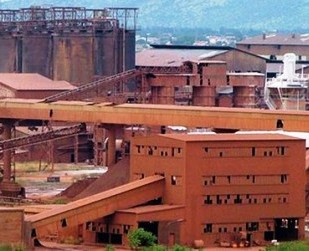 (Podgorica, 12 July 2013) – The arrest of the Podgorica Aluminum Combine (KAP)’s financial director, Dmitry Potrubach, as one of the only responsible figures for the multi-month theft of electricity from the European energy network, once again demonstrates the degree to which Montenegrin prosecutors are forced, under political pressure, to carry out the orders of the governing elite.
(Podgorica, 12 July 2013) – The arrest of the Podgorica Aluminum Combine (KAP)’s financial director, Dmitry Potrubach, as one of the only responsible figures for the multi-month theft of electricity from the European energy network, once again demonstrates the degree to which Montenegrin prosecutors are forced, under political pressure, to carry out the orders of the governing elite.
The Government of Montenegro has since the beginning of the affair participated actively in the theft of electricity for the benefit of KAP, while the Montenegrin Electro-Distribution System (CGES) carried out the technical aspects of the operation according to information already revealed by MANS.
At the beginning of this month, MANS’ investigative team published a number of documents that confirm that the Minister of Economy, Vladimir Kavaric, was from the very first day directly aware of the theft of electricity from the European energy network. He was also warned of what such a practice could mean both politically and financially.
In a February 22 letter signed by Ljubo Knezevic and Dragan Laketic, the director and the vice-president of the CGES’ Board of Directors respectively, and addressed directly to Kavaric, the men state that CGES has been left without options after the Electric Power Company of Montenegro (EPCG) refuged to continue supplying KAP from its reserves. As a result the two officials noted that the CGES had to resort to the “unsanctioned tapping of electrical energy from the European Network of Transmission System Operators for Electricity (ENTSO).”
They remind Minister Kavaric that the theft of electricity is a “real financial-political threat, if we consider that ENTSO is in direct contact with the European Commission, which is following happenings in Europe’s energy sector with an observant eye.”
On the same day, the CGES’ executives also sent an identical letter to Montenegro’s Regulatory Agency for Energy (RAE), which was also informed of the decision to steal energy from the European network.
Two months later, while the theft of electricity was fully taking place, the CGES informed the president of the Parliament Ranko Krivokapic and the vice-president, Vujica Lazovic, about the problems related to the KAP’s electricity supply.
Given all of the above, there is no doubt that the Government of Montenegro actively consented to the theft of electricity and that individual responsibility for this fact lies with the Prime Minister, Milo Djukanovic, and with Minister Kavaric, as well as with the executives at CGES.
Instead of investigating those with real political power to consent to the theft of electricity from the ENTSO network, as well as those with the technical means of carrying out the operation, prosecutors are content to arrest one of KAP’s directors (an enterprise that was using the energy stolen by CGES). There is no doubt that the KAP’s directors also share responsibility for the energy crisis at that enterprise, but it is unacceptable to ignore the involvement of other individuals also responsible for the theft (for which publicly available documentation exists).
In law-governed states, prosecutors would not only be investigating Potrubach, but also Djukanovic and Kavaric, as well as CGES executives Knezevic and Laketic. Unfortunately, the current practice in Montenegro demonstrates the powerlessness of prosecutors before governing elites, even when the material evidence is there for all to see that they violated the law and stole electricity.



